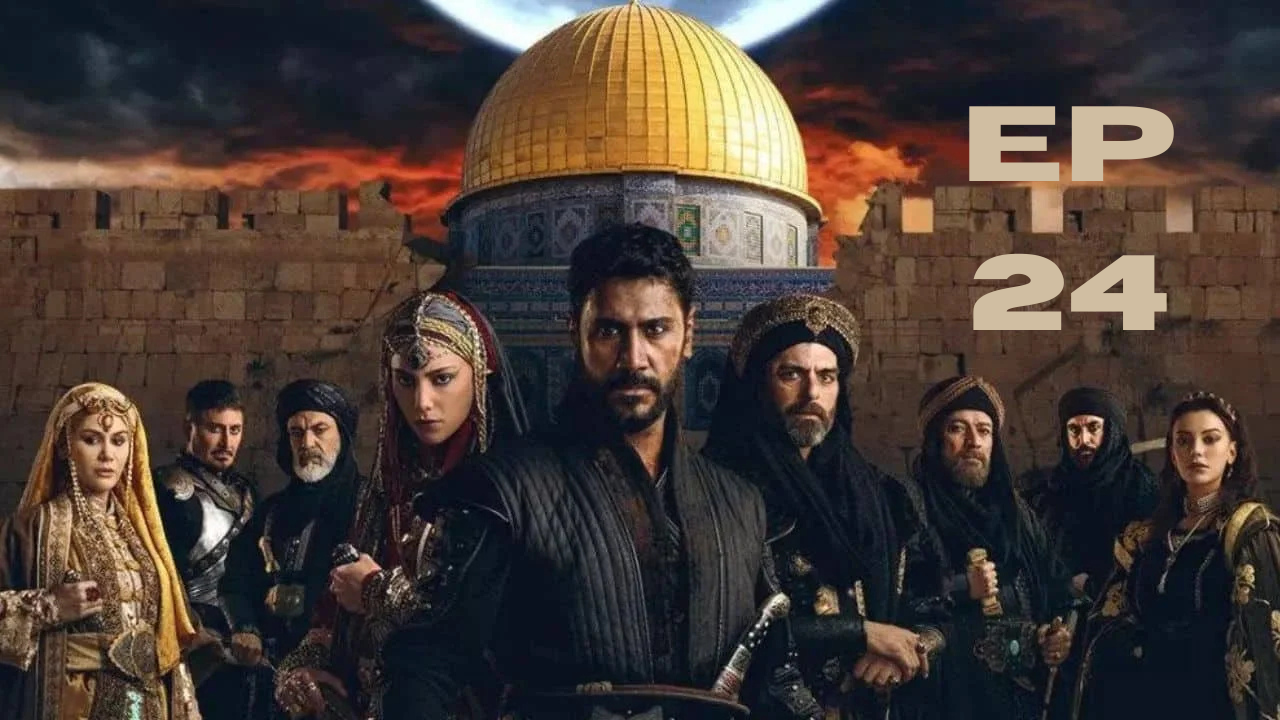Fatihi Kudüs Selahaddin Eyyubi Season 01 of EPISODE 24
Title: The Triumph of Selahuddin Ayyubi: The Acquisition of Ashkelon and Gaza
Amidst the war of empires and the fervor of faith in the colorful tapestry of the 12th century, Sheikh Abdul Qadir Jilani arose as a spiritual star who illuminated the hearts and minds of believers throughout the Islamic world. Sheikh Abdul Qadir was born in the lush province of Gilan in 1077 CE. He lived at a period of turbulent upheavals and profound transformations, coinciding with the reigns of two iconic personalities in Islamic history, Noor ud Zengi and Salahuddin Ayyubi.
Sheikh Abdul Qadir’s Formative Years:
Sheikh Abdul Qadir, the son of devout parents, was raised in the Islamic academic traditions from an early age. He began a spiritual path characterized by strict self-discipline and uncompromising commitment to the Divine under the guidance of well-known Sufi teachers.
Sheikh Abdul Qadir’s spiritual insights developed against the backdrop of political intrigue and martial turmoil. His teachings offered comfort to the oppressed souls, a glimmer of hope in the gloom of uncertainty, as the Islamic world struggled with outside threats and internal strife.
Noor ud Zengi: The Valiant Learner
Noor ud Zengi, scion of the illustrious Zengid dynasty, also became prominent in the halls of power in Aleppo and Damascus. He inherited a kingdom under attack from the Crusaders and internal dissension, having been born in 1118 CE. Beneath his opulent armor, however, lay the heart of a scholar fed by the poetry of Persian mystics and the wisdom of Islamic jurisprudence.
Throughout Noor ud Zengi’s rule, chivalric ideals were upheld and justice was relentlessly pursued. Poets, philosophers, and theologians filled his court, their words resonating off the walls of Aleppo and Damascus. But his true test came on the battlefield, where he brought different tribes together under the flag of Islam and repulsed Crusader invasions.
Saluting Salahuddin Ayyubi, the Islamic Lion
As Noor ud Zengi’s empire grew throughout the Levant, Salahuddin Ayyubi also emerged to influence the course of Islamic history. Salahuddin was born in the sands of Tikrit in 1137 CE and rose to become the emperor of Egypt and Syria during a period of Crusader assault against the Muslim world.
Salahuddin’s ascent to prominence was characterized by his unwavering quest for fairness and dedication to maintaining the ideals of chivalry. After over nine decades of foreign rule, he successfully regained Jerusalem from the Crusaders during the Battle of Hattin in 1187 CE, demonstrating his military might. However, it was his victory-related generosity that won him the respect of successive generations of Muslims and gave him the nickname “the Lion of Islam.”
Sheikh Abdul Qadir’s Spiritual Legacy:
Warriors and statesmen alike found comfort in Sheikh Abdul Qadir’s spiritual teachings during the roar of battle and the clashing of swords. His focus on the love of God (Ishq) and his unshakable loyalty to the Creator struck a profound chord with believers, providing a way to find inner peace in the midst of the turbulence of the modern world.
Salahuddin Ayyubi and Noor ud Zengi fought conflicts on the battlefield, but Sheikh Abdul Qadir engaged in a spiritual jihad against the powers of spiritual darkness and ignorance. Millions of people revered him for his mystical teachings and healing activities, and his mausoleum in Baghdad became a destination for truth-seekers seeking comfort.
The Interaction of Temporal and Spiritual Power:
The lives of Salahuddin Ayyubi, Noor ud Zengi, and Sheikh Abdul Qadir were profoundly entwined, even though their paths did not often intersect physically. Sheikh Abdul Qadir used spiritual authority to tend to the souls of believers, while Noor ud Zengi and Salahuddin Ayyubi used temporal power to guard the borders of Islam.
However, in spite of their disparate domains of impact, their legacies came together in a common dedication to preserving the values of righteousness, bravery, and knowledge. Their names live on in the annals of Islamic history as lights in the darkness of conflict and ignorance, guiding humanity.
